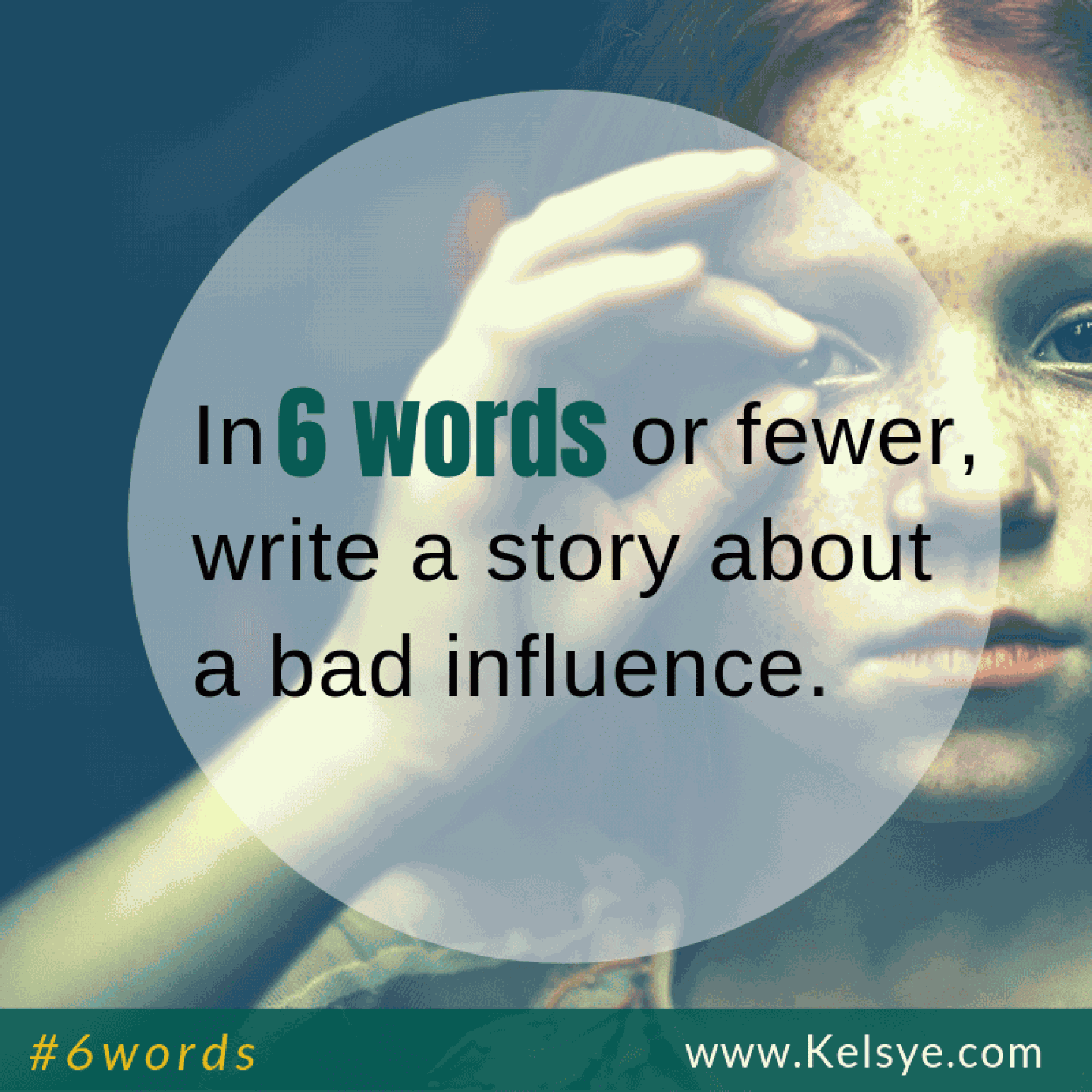Many of you answer my six word story challenge prompts on Twitter. Your creative responses have given me great pleasure. Some stories turned out shockingly insightful, others made me laugh out loud. However, I often hear from followers that you wish you could see all the responses. Let's try an experiment to make that easier.
I will post the six word challenge here on my blog. Please leave your story in the comments below. Let's see how this goes! First prompt....
In SIX WORDS or fewer, write a story about an experiment.
(Leave your story in the comments below.)

 My daughter lies in the best way possible – in her writing.
My daughter lies in the best way possible – in her writing.
 When I told my writing group that I planned to write one blog post per day in June, Kay, a poet, gave me a warning.
When I told my writing group that I planned to write one blog post per day in June, Kay, a poet, gave me a warning.





 What do Chuck Palahniuk, Ursula Le Guin and Louisa May Alcott have in common? They all belong (or belonged) to writing groups.
What do Chuck Palahniuk, Ursula Le Guin and Louisa May Alcott have in common? They all belong (or belonged) to writing groups.
 You may read thousands of books in your lifetime, but there will always be those few special ones that impact your mortal trajectory in major ways. Books inspire us, show us glimpses of the kind of lives we want to live, of the kind of people we want to be. For those of us who discover the nature of our souls vary greatly from the people that surround us in real life, books can show us understanding, give us a familiar home.
You may read thousands of books in your lifetime, but there will always be those few special ones that impact your mortal trajectory in major ways. Books inspire us, show us glimpses of the kind of lives we want to live, of the kind of people we want to be. For those of us who discover the nature of our souls vary greatly from the people that surround us in real life, books can show us understanding, give us a familiar home.








